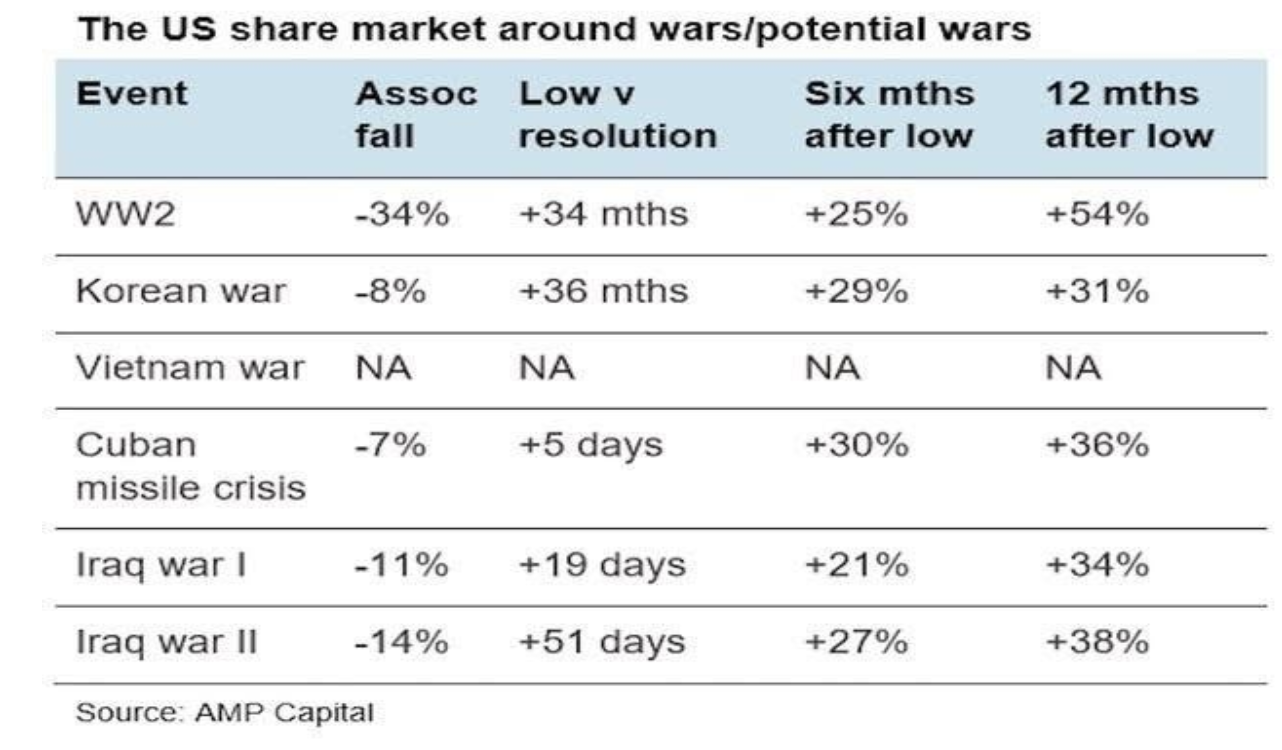How The Stock Market Performs In Times Of War

AMP Capital chief economist, Shane Oliver suggested, going by history, that market shocks from geo-political events do not last for a long period of time.
In the early hours of Friday, (Jan 3rd) there were mixed reactions in the stock markets due to the rising tensions between the United States and Iran over the death of Qasem Soleiman. While some stock prices rose, others sank.
Iranian Major-General, Qasem Soleimani, head of Tehran’s elite Quds Force, was killed in the early hours of Friday by a United States airstrike on his convoy at Baghdad airport. Iran’s Foreign Minister, in a tweet, said that the United States bears responsibility for all consequences of its “rogue adventurism.”
In Europe, travel and autos stocks led losses while oil and gas shares rose by over 1% following the renewed unrest in the Middle East. European stocks closed lower on Friday, following the spiked geopolitical tensions after U.S. airstrikes in Iraq killed the top Iranian military commander. The pan-European Stoxx 600 closed provisionally down 0.4%. Stocks in the travel auto industry had the most losses.
Oil and gas shares rose by over 1% on the back of the renewed unrest in the Middle East. Oil prices spiked following the attack, with Brent Crude and WTI both up more than 2%.
The Dow Jones Industrial Average declined by over 200 points while the S&P 500 and Nasdaq indexes were both down by about 0.6%.
Airlines, Lufthansa and Air France KLM slid around 7% and 8% respectively as airlines broadly declined on the back of the sharp rise in oil prices.
In August 2017, capital markets sharply declined at the hint of rising tensions between the U.S. and North Korea over the nuclear war threats. Several wars, like the WW2, Korean War, Vietnam War, Cuban missile crisis, Iraq War I, Iraq II, have occurred over time, and each has had an effect on the stock market.
Wars bring in uncertainty, which the capital and financial markets do not like. Following the 9/11 attacks (short-term unrest), the S&P 500 fell by more than 11%, while the Dow Jones Industrial Average fell by more than 14%. The decline, however, was short-lived as the S&P 500 later gained 5.6% and the Dow Jones gained 13% in the first six months of the war. The gains came even though the war overlapped with a bear market as well as the dot-com bubble burst.
There are potential arguments that the stock market performs better in times of war because wars bring the nations together and patriotism could come in the form of investment in domestic companies. Others say wars magnify a governments spending and increase the revenues of companies that are awarded contracts.
The case of rising tensions between Iran and the U.S., however, could be different this time around. Currently, the stock market is still experiencing uncertainty. Investing Port hopes to a close eye on how the stock market performs this week.


Be the first to comment!
You must login to comment